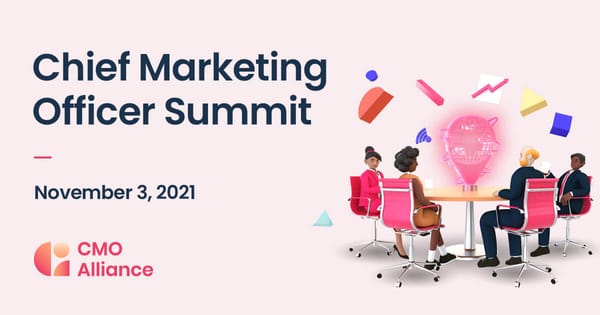We’ve been fortunate enough to feature several speakers from our recent CMO Summit on our podcast, CMO Convo. We’ve touched on several of the subjects that were covered at the CMO Summit, so we’ve pulled together some of the best moments from these speakers to give you a snapshot of some of the insights you could have caught at the summit.
- CMOs as storytellers
- Marketing in a post-pandemic world
- Customer Success
- CMOs as leaders
- Data-driven marketing
CMOs as storytellers
Gaston Tourn, CMO of Appear Here
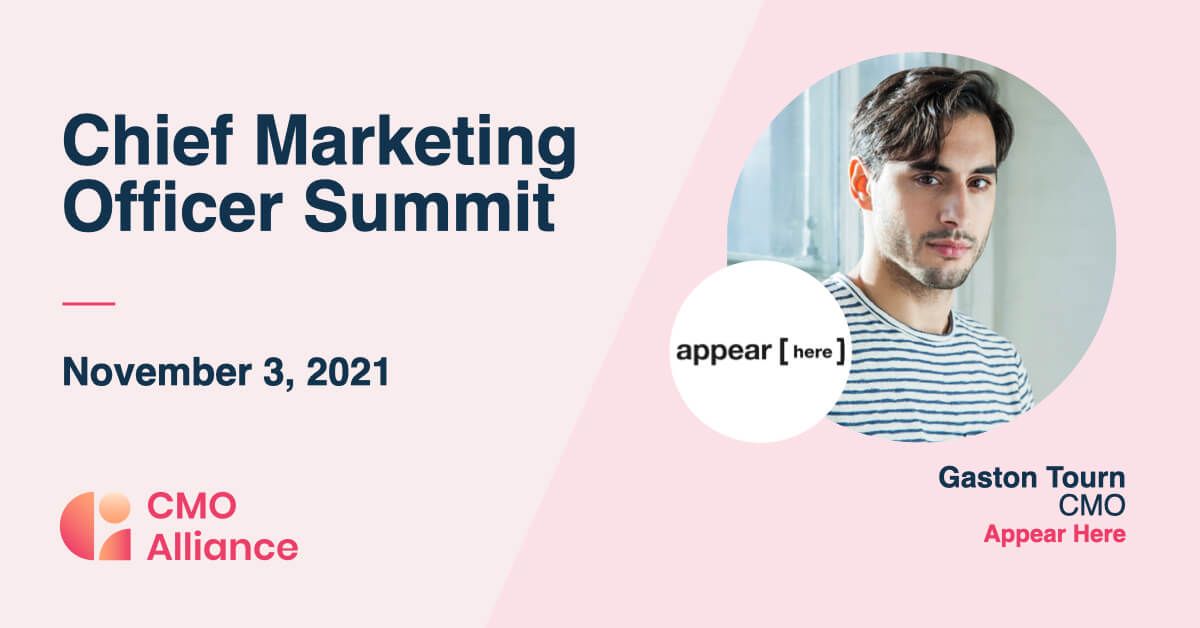
CMO Convo | Great CMOS are great storytellers
What happens when you put two literature-loving marketers on a podcast episode? You get this deep dive into marketing through storytelling, as Gastón talks about how important it is to tell great stories as a CMO, and which great literary figures they should be drawing influences from.
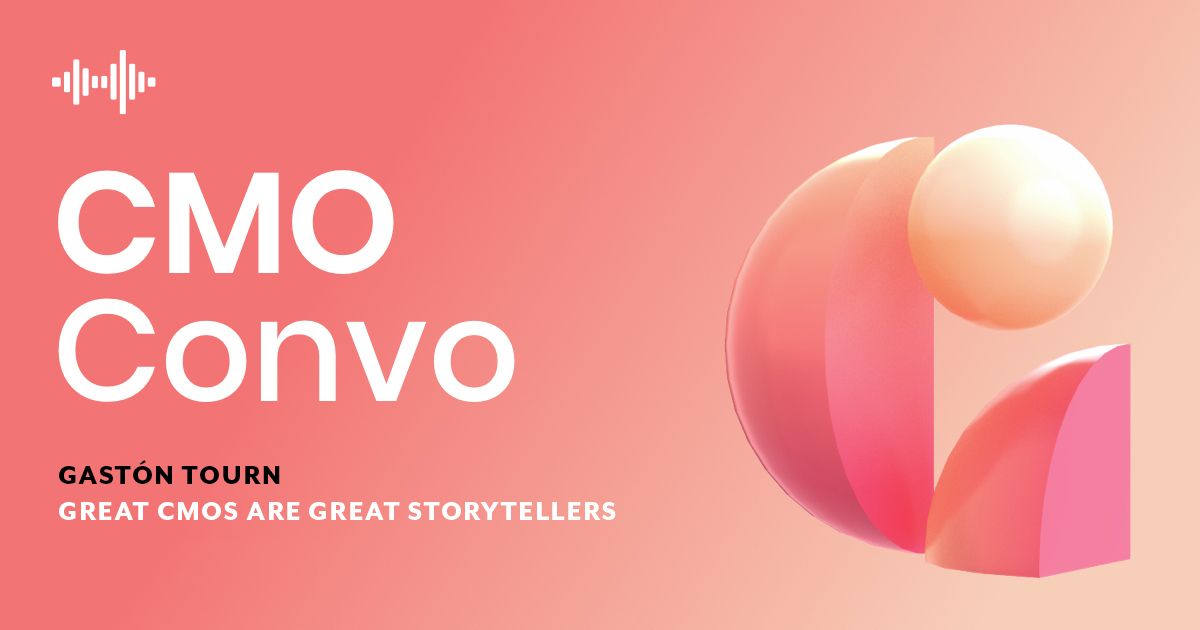
“We're always trying to show the shiny side of things, we're always trying to show people running for the fields, having ice cream, and being happy. That's not life, life can be miserable. But actually, when you show that side that's a bit more negative, and it's a bit more, perhaps less nice, you connect with your customers at a deeper level and a more meaningful level.
“I think one word that is completely the focus of any good storytelling is conflict. Conflict is a story. If you have to say “what's the story?” It's conflict. I actually love a quote from John le Carré: "the cat sat on a mat is not a story. The cat sat on a dog's mat is a story.”
“You need a dog, you need conflict, to make a story interesting. One of the questions I always ask my team, whenever they present me with an Instagram post, they present me with a press release, I always ask them, “who is the dog?”
“Because obviously, without a dog in that piece of communication, there is no story, it's not going to be interesting. So always think who is the dog in your story? Who is the dog in your presentation to the board? Because if there is no conflict, people are going to probably switch and turn off and go to the next post or the next website because you need conflict to make people interested in what you're saying.”
Marketing in a post-pandemic world
Nischala Murthy Kaushik, CMO of HFS Research
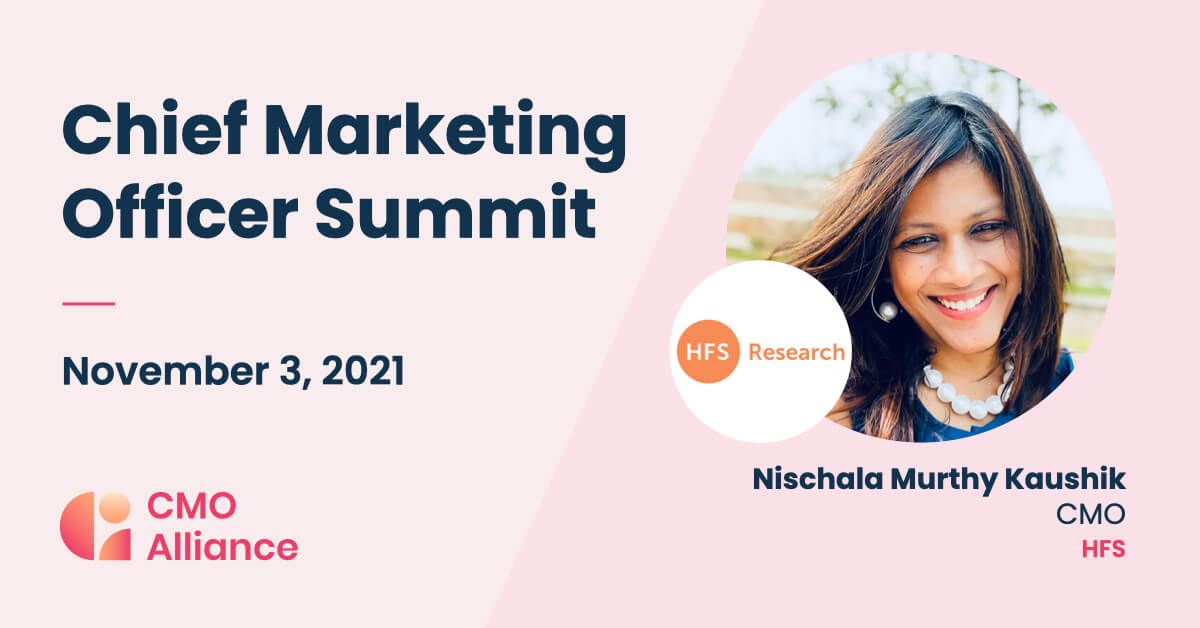
CMO Convo | Strategy, skills, and smiles
Becoming a great CMO doesn’t happen overnight. It takes work to build yourself up, and for our guest on this episode of CMO Convo, Nischala Murthy Kaushik, there are three pillars to build on: strategy, skills, and smiles.
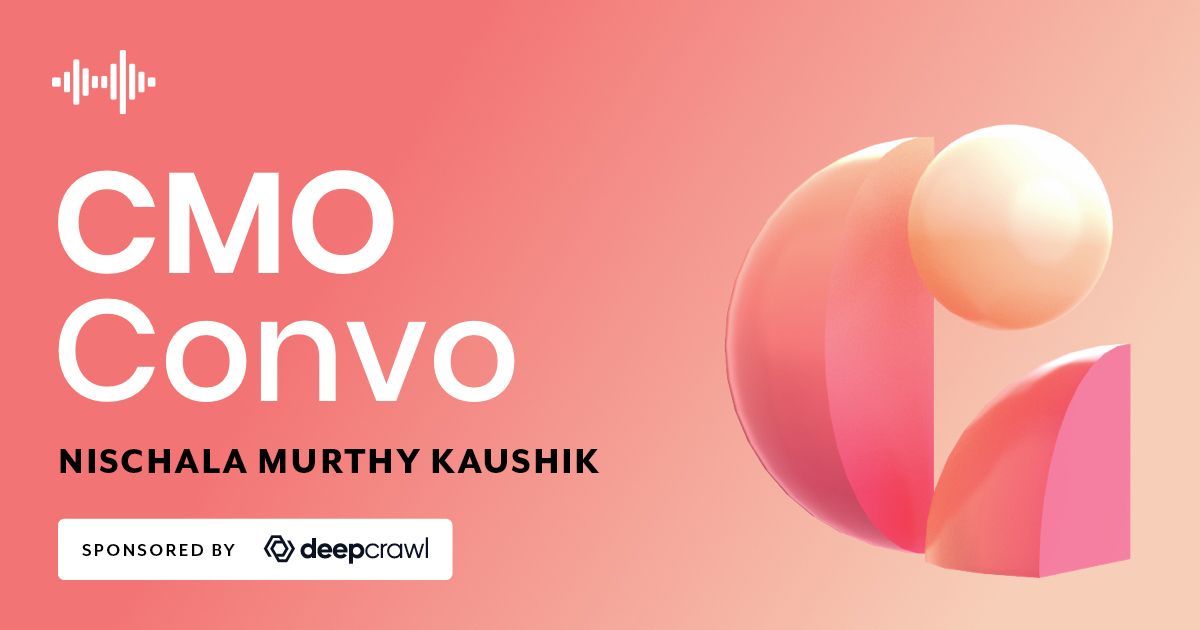
"I think ambition is always good. Personally, I think you should be ambitious because if you're not ambitious, then I mean tomorrow... Everything is questionable. But I think I would answer that question by saying that I think it depends on the industry you are in, the geography you're in, and whether you're a product or service or a platform.
“It needs to be a very thought out and comprehensive approach. Maybe for some industries, for some kind of products or services, being ambitious is not the right time because the cash reserves are low, many businesses are in survival mode so embarking on very expensive marketing programs or projects might not be welcome.
“But I also believe that gives you an opportunity as a marketeer to wear your creative thinking hats and look at maybe no money marketing programs, which still help further the brand and the business, but you keep the costs at optimum level.
“And that's not easy because it's a fundamentally different way of thinking. And it's a fundamentally different skill required to act on those grand plans. But if you don't have an option, then you have to do something.
“So if you have the money, your CEO and the business is growing, and they're happy to put all the dollars in, then I'd say go for it. But if there's a general sentiment of being cautious, and business is not doing well, then I wouldn't say go and ask for millions of dollar budgets for running high-impact marketing programs, because it just doesn't make sense.”
Customer Success
Erin McLean, CMO of eSentire
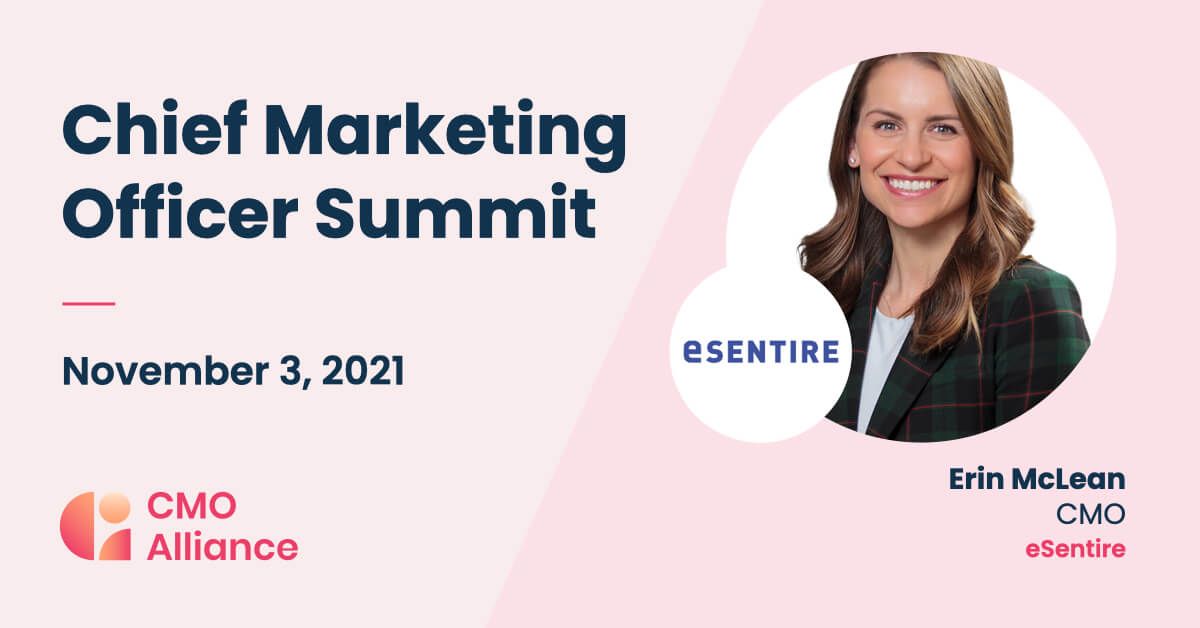
CMO Convo | Putting people at the heart of your brand story
The days of brands just being faceless monoliths are long gone: today, brand stories need to be built around people. But why is that the case, what advantages does it bring, and how can CMOs tell people-centric stories?

“At eSentire we're really focused on getting customer feedback and on continuously improving. So we have a customer advisory board that meets on a quarterly basis and one of the key points of feedback from that board was to make it easier for me to sell eSentire internally.
Showcase yourselves, get on the right list, help my board or my CEO understand why I chose you and why I made a good decision. And so hearing that from some of our top customers I think made everyone internally realize we've got to pivot our focus a little bit to make sure that who we are, and what we do is simple, that it's digestible. And that's also key.
“We have a Threat Response Unit, we call the TRU team and they are doing original research, they're building content for our customers every day, they are doing proactive threat hunts. And this is a team that we are working closely with from a marketing perspective.
“So you take your most creative people, and you take your most technical people, you marry them together, and you're able to get incredible research, original reports, and sound bites from a media perspective that are so so valuable because we can share with the press what we're seeing, and the kinds of attacks that we're seeing, the ransomware gangs that we’re stopping, and give true insight to what's really going on on the dark web.
“That's incredible and it also showcases the power of our team, it showcases the type of work we do on behalf of customers and it's a huge differentiator for eSentire overall. So to be able to tell that story is a way that we can bring the service, the technology, and a unique brand position to the market that gets our customers excited.
Because when you're featured on CNN talking about cybersecurity and ransomware, when you're featured in The Wall Street Journal, that's an easy thing for a customer to go to their boss and say, "See, I told you these guys were good". And you want to give them those opportunities as much as you can.”
CMOs as leaders
Andrea Linehan, CMO of CurrencyFair
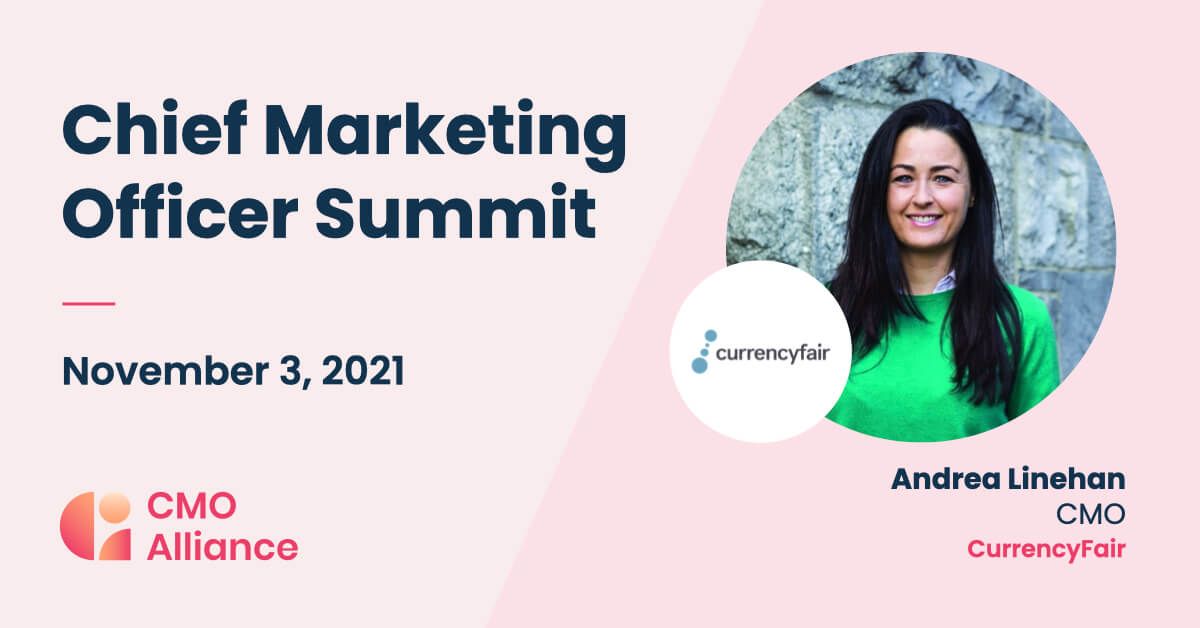
CMO Convo | How marketers can learn to love finance
5 simple words that can send shivers down the spines of many marketers: “How much will it cost?”, especially when it’s followed up with another 5 fear-inducing words: “You’d better talk to Finance.” But is that relationship healthy for effective marketing teams?
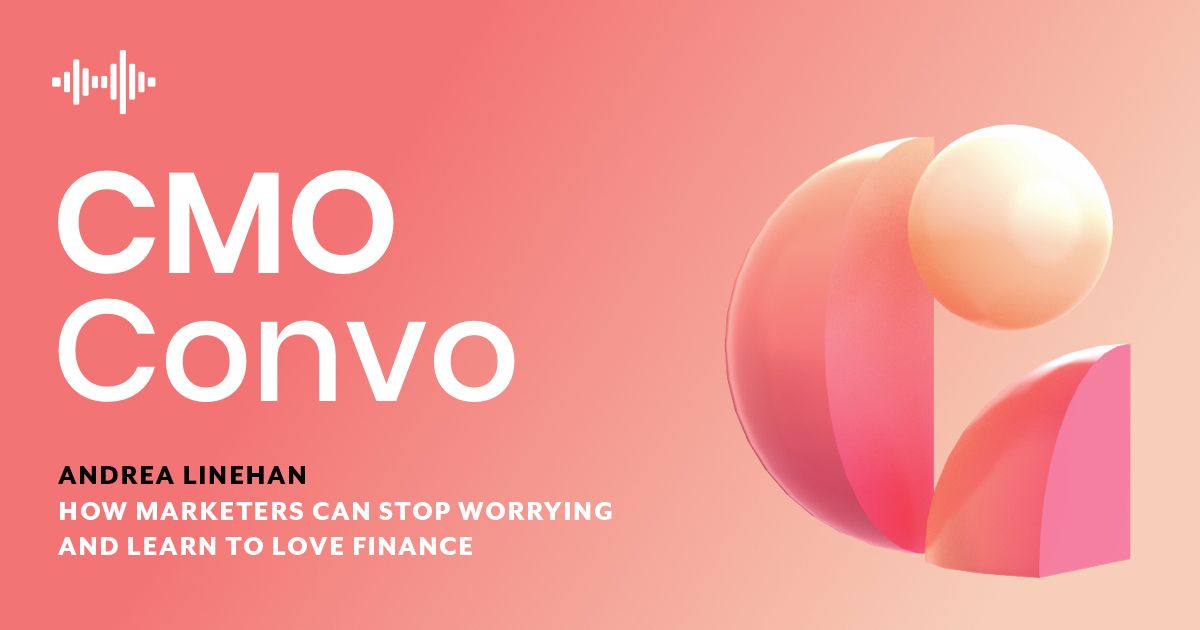
“So when our finance team is making requests of our marketing team, I will take some time to really help my team understand why the finance team is asking for that information, what is the need that they need to fill in their own role that makes them ask for it.
“And I get my team to lean into the persona side of things, if this was a customer, you'd be taking the time to really understand what that finance person needs as a potential customer. So let's do the same here with our internal colleagues. So I started off there.
“The second thing I've made sure to do is to have those conversations with all levels of my team, every line item in the marketing budget has been assigned to somebody in my team to take ownership of.
“And while I'm the ultimate last line of defense in terms of final sign off and approval, so I always have that layer of protection from my team, I will look to them to explore and figure out the answer or the right decision, rather than just giving it to them.”
Data-driven marketing
Patrick Edmonds, CMO of Proposify
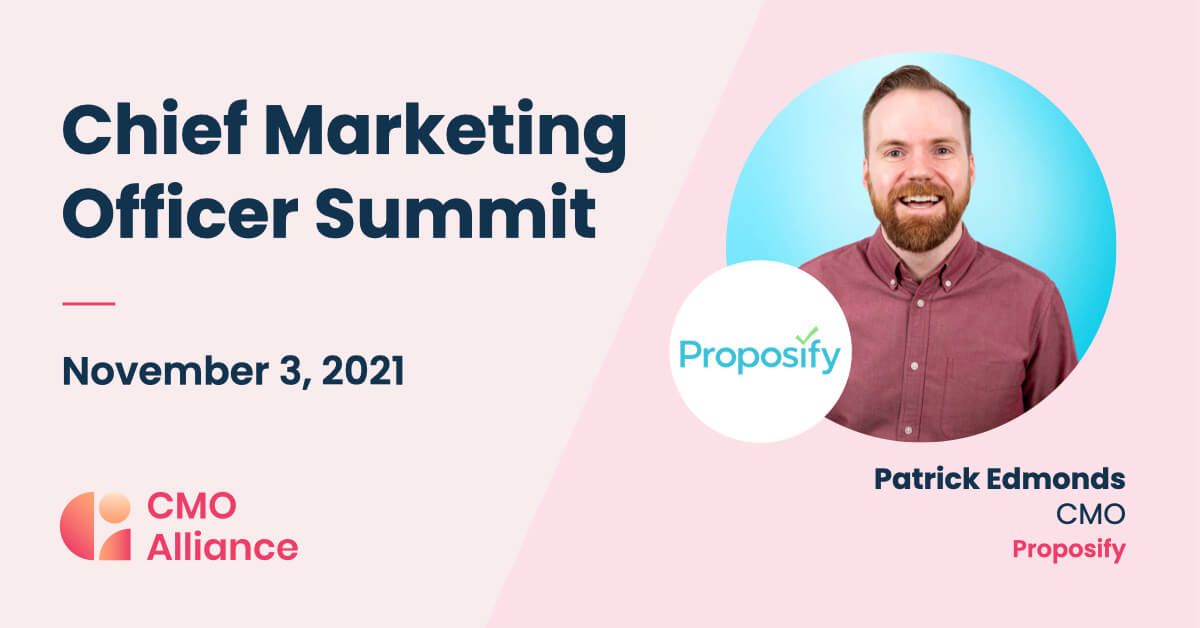
CMO Convo | Growing your business and growing into your role as a CMO
CMOs talk about growth ALOT, but usually, that’s just in relation to their company. In this episode, our guest, Patrick Edmonds, points out that as your company grows, your role as CMO does too.
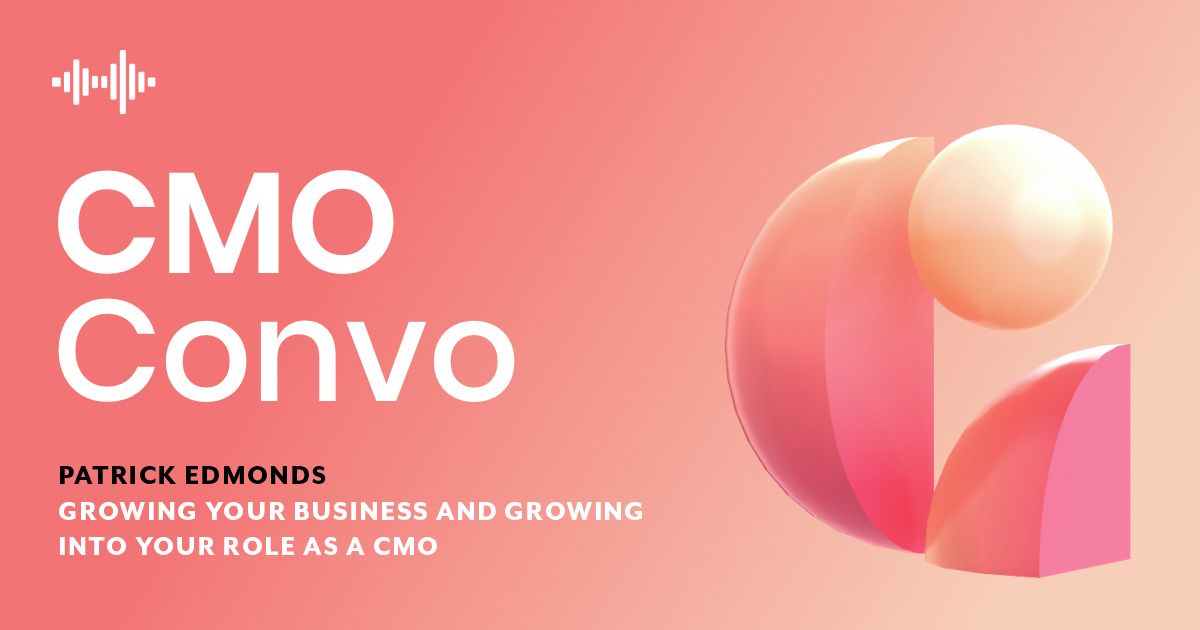
“So the marketing engine is kind of this combination of all the touchpoints from the traditional top of funnel down into the bottom of funnel, it's your pirate metrics, AARRR: acquisition, activation, retention, revenue, referral. And it’s all of the pieces that fit into that. So if I have a playbook, it’s really just saying, “you need to understand what your revenue engine is”, and you need to understand, “what's the market that I'm going after?”
“How am I positioning my product or my service to that market? What channels am I choosing to communicate that message of the positioning to that market? When I communicate to that market, how am I capturing it?
“Then there's a nurture sequence after that: “how am I communicating and educating through this buyer journey?” Whether that's through email or retargeting ads, or just communication on our website, or webinars that we go on, or things that we sponsor in the market? How do we make sure that once we've captured them, that they are able to make a buying decision if that's the right decision for them? And then what's the ultimate conversion point?
“How did they end up buying? And do you make it easy for them to do that? Is it an easy choice? Have you communicated your value effectively, so that mechanism of revenue capture makes sense? Then are you continuing to keep them after that capture? So it's understanding how all of those pieces play together and if you change one, it might impact the rest of them.
“So it's understanding ultimately, how do we get money from people? How do we make revenue? And what were all of the touchpoints that had them that preceded that?
“So in order to truly understand that you need to know your data inside and out.”
Want to share insights on the role of CMOs? Looking for advice and help? Head to the CMO Alliance Community!




 Follow us on LinkedIn
Follow us on LinkedIn


